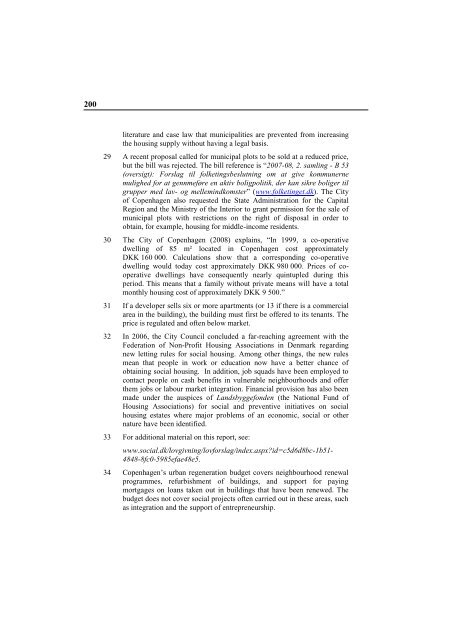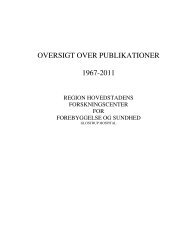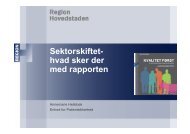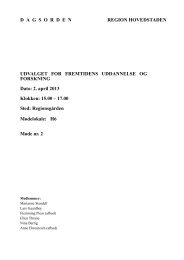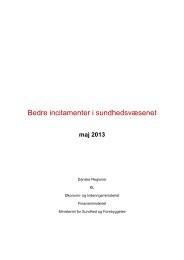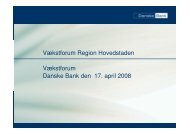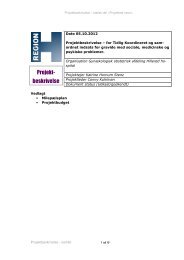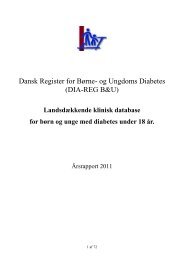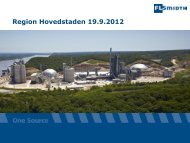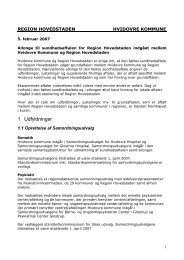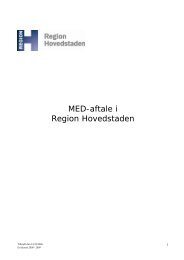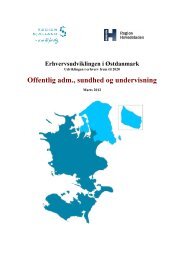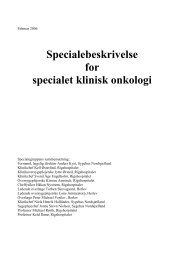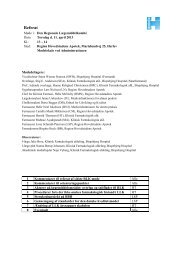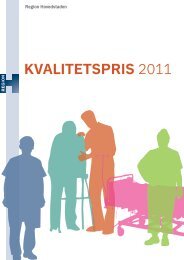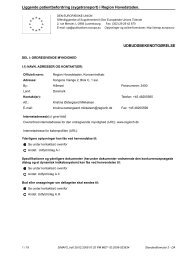Territorial Review Copenhagen - Region Hovedstaden
Territorial Review Copenhagen - Region Hovedstaden
Territorial Review Copenhagen - Region Hovedstaden
Create successful ePaper yourself
Turn your PDF publications into a flip-book with our unique Google optimized e-Paper software.
200<br />
literature and case law that municipalities are prevented from increasing<br />
the housing supply without having a legal basis.<br />
29 A recent proposal called for municipal plots to be sold at a reduced price,<br />
but the bill was rejected. The bill reference is ―2007-08, 2. samling - B 53<br />
(oversigt): Forslag til folketingsbeslutning om at give kommunerne<br />
mulighed for at gennmeføre en aktiv boligpolitik, der kan sikre boliger til<br />
grupper med lav- og mellemindkomster‖ (www.folketinget.dk). The City<br />
of <strong>Copenhagen</strong> also requested the State Administration for the Capital<br />
<strong>Region</strong> and the Ministry of the Interior to grant permission for the sale of<br />
municipal plots with restrictions on the right of disposal in order to<br />
obtain, for example, housing for middle-income residents.<br />
30 The City of <strong>Copenhagen</strong> (2008) explains, ―In 1999, a co-operative<br />
dwelling of 85 m² located in <strong>Copenhagen</strong> cost approximately<br />
DKK 160 000. Calculations show that a corresponding co-operative<br />
dwelling would today cost approximately DKK 980 000. Prices of cooperative<br />
dwellings have consequently nearly quintupled during this<br />
period. This means that a family without private means will have a total<br />
monthly housing cost of approximately DKK 9 500.‖<br />
31 If a developer sells six or more apartments (or 13 if there is a commercial<br />
area in the building), the building must first be offered to its tenants. The<br />
price is regulated and often below market.<br />
32 In 2006, the City Council concluded a far-reaching agreement with the<br />
Federation of Non-Profit Housing Associations in Denmark regarding<br />
new letting rules for social housing. Among other things, the new rules<br />
mean that people in work or education now have a better chance of<br />
obtaining social housing. In addition, job squads have been employed to<br />
contact people on cash benefits in vulnerable neighbourhoods and offer<br />
them jobs or labour market integration. Financial provision has also been<br />
made under the auspices of Landsbyggefonden (the National Fund of<br />
Housing Associations) for social and preventive initiatives on social<br />
housing estates where major problems of an economic, social or other<br />
nature have been identified.<br />
33 For additional material on this report, see:<br />
www.social.dk/lovgivning/lovforslag/index.aspx?id=c5d6d8bc-1b51-<br />
4848-8fc0-5985efae48e5.<br />
34 <strong>Copenhagen</strong>‘s urban regeneration budget covers neighbourhood renewal<br />
programmes, refurbishment of buildings, and support for paying<br />
mortgages on loans taken out in buildings that have been renewed. The<br />
budget does not cover social projects often carried out in these areas, such<br />
as integration and the support of entrepreneurship.


